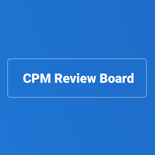Vital Signs: Pulses
Presented by Amy Shortall-Cardillo and Clinical Procedure Manual Review Board

12-Month Subscription
Unlimited access to:
- Thousands of CE Courses
- Patient Education
- Home Exercise Program
- And more
Nonfinancial: Amy Shortall-Cardillo has no competing nonfinancial interests or relationships with regard to the content presented in this course.
Pulse rate is a fundamental vital sign that is used to monitor various conditions being addressed in home healthcare. Knowing how to measure the pulse and recognize when the pulse rate is outside acceptable parameters or does not have a regular rhythm is an important skill to master. In this training, we’ll review the equipment and procedures for checking a patient’s pulse. This course includes
• Video demonstrations of procedures
• Downloadable procedure guide PDFs
• Tips and best practices for performing these procedures
The pulse measurement is an assessment of the heart rate (how fast or slow the heart is beating) and the rhythm. This skill applies to all home health staff, including nurses, aides, and therapists. Checking the patient’s pulse is necessary for most home health patients, and aides will perform this assessment when it is listed on the aide’s plan of care.
Meet your instructors

Amy Shortall-Cardillo
Amy Shortall-Cardillo is the director of compliance and education at Concordia Community Support Services in Cabot, Pennsylvania. In this role, she is responsible for the quality, compliance, and education programs for multiple home health, hospice, and private duty agencies. Amy ensures that each agency is working…

Clinical Procedure Manual Review Board
The MedBridge Clinical Procedure Manual Review Board ensures the development and maintenance of up-to-date and evidence-based clinical procedures. The review board is composed of leading nurse experts in the field: Danielle Pierotti, RN, PhD, CENP, and Margherita Labson, RN, BSN, MSHSA. The review board is involved in…
Chapters & learning objectives

1. Introduction
This chapter includes an introduction to checking a patient’s pulse, information on all of the equipment needed for this assessment, and recommended infection control policies.

2. Procedure: Pulses
This chapter will provide a step-by-step procedure guide and video demonstration of checking a patient’s pulse.

3. Tips, Precautions, and Care Considerations
This chapter provides tips and considerations for checking a patient’s pulse in the home health setting.

4. Documentation Guidelines
This chapter provides recommendations on what to note when documenting a patient’s pulse.

5. Conclusion
This chapter includes learning assessment questions to assess the learner’s knowledge of skills covered in this course. A bibliography of referenced material is also included.
More courses in this series

Aide Skills: Transfers
Adrienne Nova

Aide Skills: Bed Mobility
Adrienne Nova

Aide Skills: Range of Motion
Adrienne Nova

Vital Signs: Respiratory Rate
Amy Shortall-Cardillo and Clinical Procedure Manual Review Board

Vital Signs: Pulses
Amy Shortall-Cardillo and Clinical Procedure Manual Review Board

Vital Signs: Temperature
Amy Shortall-Cardillo and Clinical Procedure Manual Review Board

Aide Skills: Tub Bath and Shampooing
Amy Shortall-Cardillo

Aide Skills: Sponge Bath and Shampooing
Amy Shortall-Cardillo

Aide Skills: Shower and Shampooing
Amy Shortall-Cardillo

Aide Skills: Oral Hygiene
Amy Shortall-Cardillo

Aide Skills: Nail and Skin Care
Amy Shortall-Cardillo

Aide Skills: Communication
Amy Shortall-Cardillo

Aide Skills: Bed Bath and Shampooing
Amy Shortall-Cardillo

Aide Skills: Toileting
Amy Shortall-Cardillo

Aide Skills: Nutrition
Amy Shortall-Cardillo

Aide Skills: Changes in Skin
Amy Shortall-Cardillo

Aide Skills: Ambulation
Amy Shortall-Cardillo